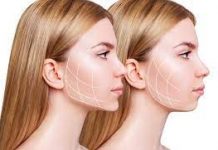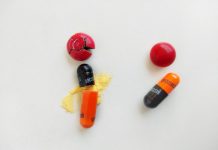Dental hygiene is incredibly important. Many of us don’t realize that keeping up with our regular dental checkups gives us a window to see if there are any other underlying issues going on with our health. You wouldn’t believe how many problems can arise just by not taking care of your teeth properly. There are some really gross and serious consequences when you don’t take care of your teeth. There are also 12 things your dentist wants you to know.
- Your mouth is full of bacteria
- When your mouth is dry, bacteria grows at an alarming rate
- Plaque grows on your teeth while you’re sleeping
- Bad hygiene can turn into gum disease
- If you brush too hard, your gums can recede
- Poor dental hygiene can affect your overall health
- Dental checkups include oral cancer screenings
- Bad breath can be the result of a dental problem
- Change your toothbrush
- A chip in your tooth is very vulnerable to tooth decay
- Sugary and starchy foods feed the bacteria that eat away at your enamel and causes cavities
- Proper nutrition is important for good dental health
YOUR MOUTH IS FULL OF BACTERIA
It’s crazy how dirty our mouths can get. Even if you practice good hygiene your mouth is full of bacteria. Bacteria and plaque stick to the front, back, side, in between your teeth and under your gums. It builds up on your teeth daily. The best way to keep plaque at bay is to brush twice a day for at least two minutes.
WHEN YOUR MOUTH IS DRY, BACTERIA GROWS AT AN ALARMING RATE
While the word saliva sounds a bit gross, it’s pretty important for cleaning our teeth and combating cavities. Saliva can actually help wash food residue away, it neutralizes the acids in your mouth and helps to restore and repair your teeth. So if you suffer from dry mouth, try to keep a bottle of water near to keep your mouth hydrated.
Also, make sure to stay well hydrated, to improve your saliva. Dehydration can reduce the amount of saliva your body produces, so drink lots of water—preferably fluoridated water.
After exposure to strong acids, neutralize the acid in your mouth by rinsing with water or an ADA fluoride mouth rinse. Also, you can rinse your mouth with a baking soda or sodium bicarbonate mouth rinse (add one teaspoon in a glass of water).
PLAQUE GROWS ON YOUR TEETH WHILE YOU’RE SLEEPING
Even when you brush before going to bed, plaque still grows while you’re sleeping. So brushing in the morning is equally as important as brushing before going to bed. If you breathe and sleep with your mouth open, know that you’ve dried your mouth out all night long, so it’s chock full of bacteria. You’ll definitely want to brush, floss and anything else you can do to get rid of the germs. This website can definitely help you get on the right track.
BAD HYGIENE CAN TURN INTO GUM DISEASE
Gum disease can be very common in people who don’t take care of their teeth. Gum disease is when the gums and periodontal structure become inflamed and that usually means the gums are red, swollen and can often bleed during brushing. If left untreated, the inflammation can spread below the gums and along the roots of the teeth causing damage to the periodontal ligament and the bone that supports it. Ultimately, your teeth will start to loosen and fall out.
So, don’t neglect good dental hygiene. Take due diligence to keep up with dental appointments. Be open with your dentist about the best dental practices and treatments to help improve your oral health.
IF YOU BRUSH TOO HARD YOUR GUMS CAN RECEDE
Brushing too hard can make your gums recede and that means the process in which the border of the gum tissue that surrounds the teeth eventually wears away, or pulls back, therefore revealing more of the tooth or the tooth’s root. Pockets and gaps can form between the teeth and the gums making it easy for bacteria to build up. If this is left untreated, you eventually will lose your teeth.
Because gum disease can cause other health problems, private and government healthcare agencies and organizations, such as APlus Institute, stress the importance of good dental care. They never fail to disseminate information about good dental hygiene and regular dental checkups for preventive maintenance. As early as pre-school years, the education sector develops dental health programs to teach children about good oral hygiene.
POOR DENTAL HYGIENE CAN AFFECT YOUR OVERALL HEALTH
I can’t stress how important it is to take care of your teeth. However, it’s more than just the health of your teeth and mouth. Poor oral hygiene can affect your entire body in a really negative way. Bacteria from your mouth can undoubtedly get into your bloodstream can cause infections and inflammation wherever it spreads. It puts you at risk for heart disease, dementia, respiratory infections, diabetes, pregnancy complications, infertility, cancer, kidney disease, and rheumatoid arthritis. This alone should definitely make you want to practice good oral hygiene.
DENTAL CHECKUPS INCLUDE ORAL CANCER SCREENINGS
When you go for your regular dental checkups, your dentist is also checking for oral cancer. That’s why it’s important to stay on top of your checkups. This disease affects the mouth, lips, and throat and if caught early on it can be treated.
During this time of pandemic, dental clinics are more stringent in enforcing dental procedures, including cancer screenings. Dentists ask patients to use goggles, dental bibs, face coverings, and other personal protective equipment to protect the patient and the dentist from oral fluids and debris, such as high-quality dental bibs. Sites like https://primodentalproducts.com/blogs/news/what-is-a-dental-bib explain what dental bibs are actually used for.
BAD BREATH CAN BE THE RESULT OF A DENTAL PROBLEM
Bad breath is usually a telltale sign that else is going on in your body. You should brush and floss more often, scrape your tongue, rinse your mouth regularly and keep your gums healthy. These are also signs of gum disease due to a buildup of plaque on the teeth and then turning into toxins.
Many people with halitosis or bad breath also experience low self-esteem that affect their self-image, interpersonal relationships, and career. Don’t be one of them. This dental problem is preventable. See your dentist for a thorough assessment and find a more permanent solution to bad breath if self-help remedies don’t work.
CHANGE YOUR TOOTHBRUSH
It’s equally important to change your toothbrush every three months because of normal wear and tear which makes them less effective. Bacteria can hide in your toothbrush and lead to reinfection. IF you don’t change your brush, fungus and bacteria will develop on the bristles on your brush.
Many dental health professionals highly recommend changing toothbrush every three months. Also, the American Dental Association (ADA) advise replacing toothbrush about every three to four months, or if the bristles look frayed.
A CHIP IN YOUR TOOTH IS VERY VULNERABLE TO TOOTH DECAY
When your tooth chips the dentin becomes exposed. All of a sudden, bacteria can get into the chipped part of the tooth. Should you chip your tooth, you should get it fixed immediately to prevent further damage. This website will help with any dental issues that you may have.
The foods that may easily cause tooth decay include the following:
- Biscuits and cakes
- Ice cream
- Soft drinks
- Fruit juice
- Chocolate and candies
- Flavored milks and yogurts
- Cereal bars and sugary breakfast cereals
- Canned fruits in syrup
- Syrups, marinades, and sauces
- Jams
As you can see, the foods listed above are high in sugar. Eating more vegetables, fruits, and high-fiber foods is advisable to help avoid tooth decay for better oral health.
SUGARY AND STARCHY FOODS FEED THE BACTERIA THAT EAT AWAY AT YOUR ENAMEL AND CAUSES CAVITIES
When sugar is metabolized, it becomes acid that sticks to your teeth causing decay and cavities. Obviously, you can’t avoid all sugar, especially the ones in fruit. So always brush afterwards. Foods that are easy to get off your teeth are dairy and meat.
Aside from brushing, flossing your teeth is a good way to remove stubborn food particles that go in between teeth. Rinse your mouth properly with water or mouth rinse solution after flossing to obtain the best results.
PROPER NUTRITION IS IMPORTANT FOR DENTAL HEALTH
Limit the amount of sugar that you consume, especially the ones in soda and candy. All the bacteria mixed with the acid will ruin your teeth.
It doesn’t take much effort to brush twice a day, floss, get your regular dental checkups and cleanings as well as eating a balanced and nutritional di










![Daily Bite [Make]: Philly Cheesesteak Stuffed Bell Peppers](https://dashofwellness.com/wp-content/uploads/2013/01/Philly-Cheesesteak-Stuffed-Pepper-Daily-Bite-1-100x70.png)
